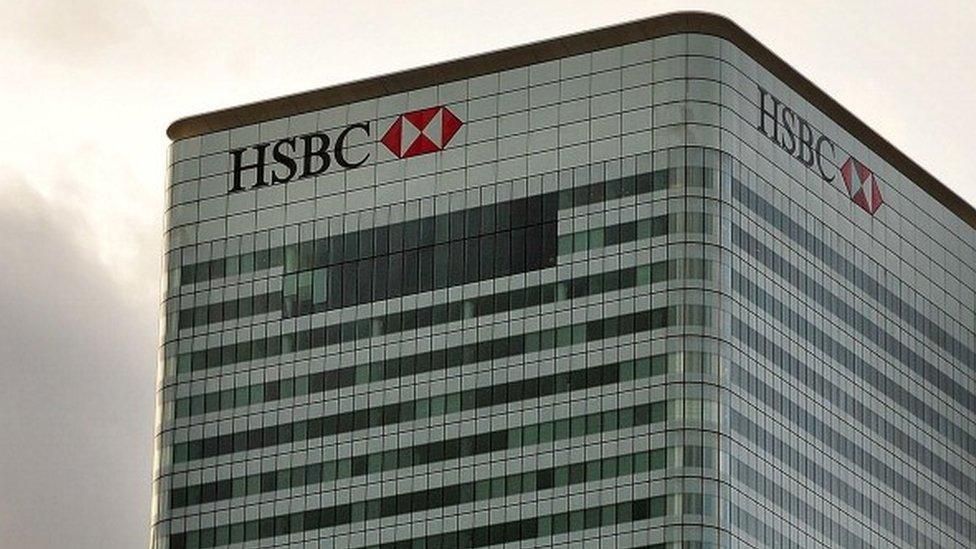Treasury heaves sigh of relief as HSBC stays in UK
- Published
- comments

Was it all a bluff? That would be the easy conclusion to draw after HSBC announced that it would be staying in London.
Was it ever serious about moving its headquarters - to Hong Kong in particular?
Well, when the discussions first started in April 2015, there were certainly senior executives who could see the attractions of moving.
Stuart Gulliver, the chief executive, who has spent most of his banking life in Asia, was believed to be one of them.
He would privately point out that the banking levy introduced by the coalition government wiped out the profits the bank made in the UK.
The tax particularly affected banks like HSBC as it was levied on worldwide assets.
HSBC has a very large business outside the UK.
It is not called the Hong Kong, Shanghai Banking Corporation for nothing.
The mood of the bank certainly changed when George Osborne decided after the last election to change the levy to a surcharge on banks' UK profits.
Treasury delight
That hit banks with mainly British businesses like Lloyds harder.
And saved HSBC money.
Mr Osborne knew that a major bank leaving London would be a major blow.
And there was certainly delight in the Treasury.
And more fuel for the critics who claim that Mr Osborne changed policy to keep HSBC in the UK.
For HSBC itself, the decision wasn't just about the tax environment in the UK.
There was also the problem of the regulatory environment in China - with the central bank causing nervousness among investors and volatility in the markets after intervening in the stock and currency markets.
Poorer news about the Chinese economy also focused minds at HSBC's Canary Wharf headquarters in London's docklands.
One interesting point to make about the decision is that whatever fears HSBC has about Britain possibly leaving the European Union, London's attraction as a financial capital was more significant.
Which raises a challenge for those who argue that businesses could quit the UK if Britain were to leave the EU.
"The UK is an important and globally connected economy," HSBC said in a statement.
"It has an internationally respected regulatory framework and legal system, and immense experience in handling complex international affairs.
"London is one of the world's leading international financial centres and home to a large pool of highly skilled, international talent.
More nuanced debate
"It remains therefore ideally positioned to be the home base for a global financial institution such as HSBC."
Some argue that London's financial status could be put at risk if Britain leaves the EU.
Indeed, HSBC has itself raised its concerns.
But the bank's decision shows that it is a much more nuanced debate than those for or against membership of the European Union might argue.
HSBC has said that it will not review the decision about where it is headquartered unless there is a "material change in circumstances".
Whether the referendum on whether Britain remains in or leaves the EU constitutes a "material" change remains to be seen.